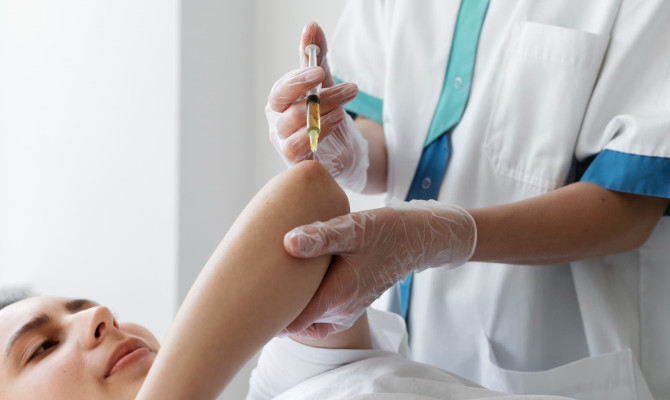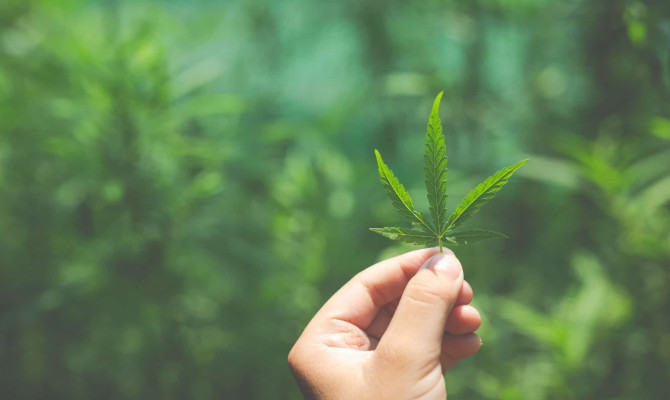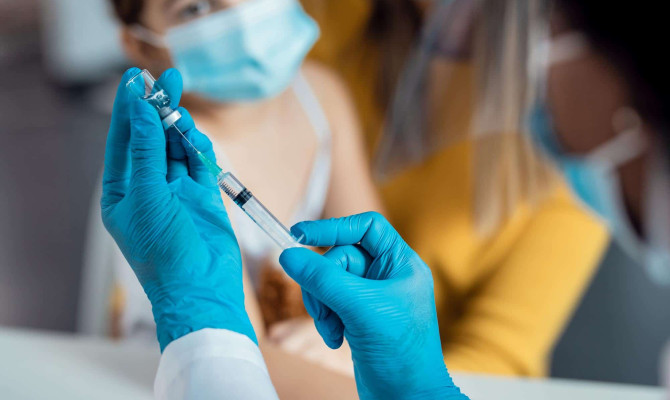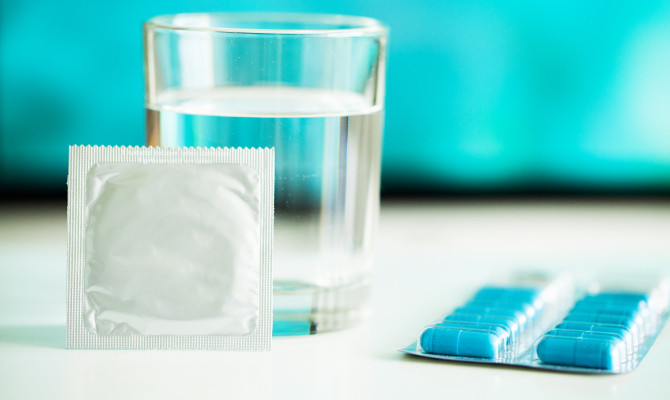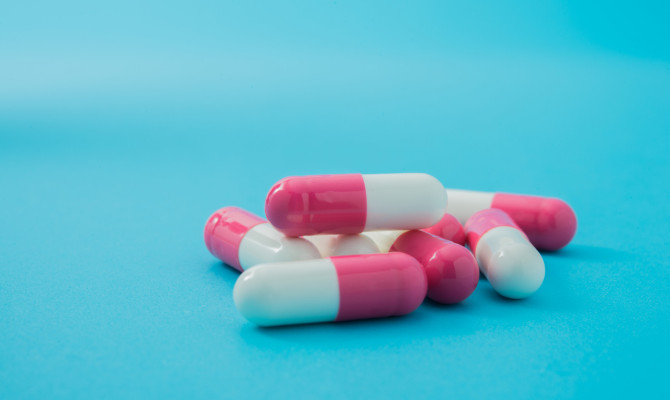Ivermectin: Uses, Dosage, Side effects and Interactions

- Ivermectin
- 22 Aug 2023
Overview
What is Ivermectin?
Ivermectin is an antiparasitic drug that is used to treat infections brought on by parasites like Strongyloides stercoralis and Onchocerca volvulus. These two are responsible for the diseases strongyloidiasis and onchocerciasis, often known as river blindness, respectively.
Ivermectin comes under the category of antihelmintics class of drugs. It is a low-cost generic version of a prescription antiparasitic medication. Ivermectin’s brand-name is stromectol.
The antiparasitic drug ivermectin was initially made available and approved by the FDA in the 1980s. It belongs to the family of drugs called as macrocyclic lactones. Ivermectin 1Overview| Researched based study from Nlm.nih.gov comes from the avermectins, which are a group of highly active, broad-spectrum anti-parasitic drugs that were found in the fermentation products of Streptomyces avermitilis.
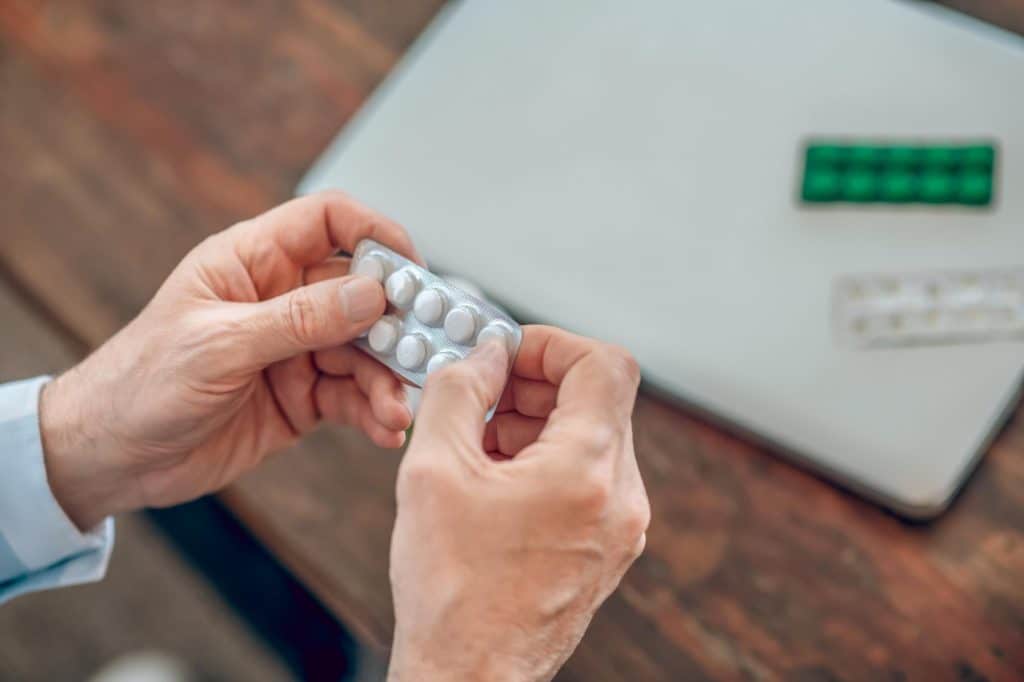
How does Ivermectin work?
- Ivermectin will kill the parasites by destruction their nervous system, This causes parasite nerve cells to hyperpolarize and paralyze & preventing them from feeding, moving and reproducing.
- Ivermectin’s efficacy depends on the parasite being targeted, hence it should only be used by a doctor after a correct diagnosis.
Uses
Uses of Ivermectin
Ivermectin has a number of authorized and well-known uses 2Uses| Researched based study from Nlm.nih.gov , some of which are listed below:
- Onchocerciasis
- Lymphatic filariasis
- Strongyloidiasis
- Scabies
- Head Lice
- Infections due to intestinal parasites
- Prophylaxis for filariasis
- Veterinary Applications
- Covid 19
- Rosacea
- Demodex eye disease
- Chagas’ disease
Onchocerciasis (river blindness)
- Onchocerciasis, a parasitic illness brought on by the filarial worm. Ivermectin is utilized in mass medicine administration programs to manage and get rid of this illness.
Lymphatic filariasis
- Lymphatic filariasis caused by Wuchereria bancrofti and Brugia malayi, is treated with ivermectin.
Strongyloidiasis
- Strongyloidiasis, a parasitic illness caused by Strongyloides stercoralis, is treated with ivermectin.
Scabies
- Scabies is one of the contagious skin infections caused by the mite Sarcoptes scabiei. It may be treated with ivermectin.
Head Lice
- Ivermectin has sometimes been used to treat head lice infestations outside of its approved uses.
Infections due to intestinal parasites
- Ivermectin has shown effectiveness in treating intestinal parasite infections caused by roundworms (ascariasis), pinworms (enterobiasis) and whipworms (trichuriasis).
Prophylaxis for filariasis
- Ivermectin is used as prophylactic to stop the spread of various parasite illnesses and lower their prevalence.
Veterinary Applications
- In veterinary medicine, ivermectin is often used to treat parasite diseases in a broad range of species, including cattle, pets, and horses.
COVID-19
- Ivermectin may have antiviral qualities and might lessen viral replication or improve symptoms. But the WHO and the FDA did not advise its broad usage for COVID-19 3Uses| Researched based study from Nlm.nih.gov due to the conflicting and mixed nature of the available data.
Rosacea
- Topical ivermectin is a potential treatment for papulopustular rosacea, a common skin disorder marked by facial redness, papules, and pustules.
Demodex Eye Disease
- Blepharitis is a disorder caused by a demodex mite infestation on the eyelids. Topical ivermectin is used as a possible therapy for demodex blepharitis, and they have shown promising results.
Chagas’ disease
- Ivermectin has been studied as a potential treatment for Chagas disease, a parasitic illness in tropical regions caused by the Trypanosoma cruzi parasite.
An experienced medical expert should recommend and oversee the administration of Ivermectin.
Does ivermectin kill all stages of parasites?
- Ivermectin normally works well against adult parasites, however it may not work as well against their eggs or larvae. It may be essential to use repeated dosages or a combination of therapies in order to affect all life phases.
Dosage
Dosage of Ivermectin
Available dosage are:
- Ivermectin is available as a 3-mg pill 4Dosage| Researched based study from Fda.gov that should be swallowed.
- The typical dosage is one pill with a glass of water.
- It may take more than one dosage to adequately treat an illness like onchocerciasis.
- Your doctor may recommend an extended treatment plan with further ivermectin doses at 3, 6, or 12 months following the initial dose if your infection has not resolved.
How should I take this medication?
- Ivermectin should generally be taken orally in line with the directions provided by the doctor.
- The drug should generally be ingested on an empty stomach, along with a full glass of water.
- Ivermectin must be administered at least 30 minutes before consuming any food.
How to use topical ivermectin?
Topical ivermectin is well-tolerated with less systemic adverse effects than oral formulation.
Use topical ivermectin as directed:
- Wash and dry the region before and after administering topical ivermectin.
- Apply a pea-sized quantity of topical ivermectin cream or lotion to the afflicted skin. Massage the medicine into the skin.
- Don’t put the drug in the sensitive areas like in your eyes, mouth, or wounds.
- Check for side effects. Topical ivermectin is typically well-tolerated, however some people may develop skin irritation.
To be sure topical ivermectin is right for you, talk to your doctor first. They can provide you with proper medical advice.
Missed dose
- Ivermectin is typically used once a day. If you skip the ivermectin dosage that is planned for the next day (or if your doctor instructed you to take additional medication), let them know.4Dosage| Researched based study from Fda.gov
Overdose
- General overdose features are nausea, vomiting and tremors.4Dosage| Researched based study from Fda.gov
- More dangerous side effects, such as trouble breathing, loss of consciousness, or coma, may be seen in extreme overdose instances, particularly with much greater dosages or in weaker people.
Side effects
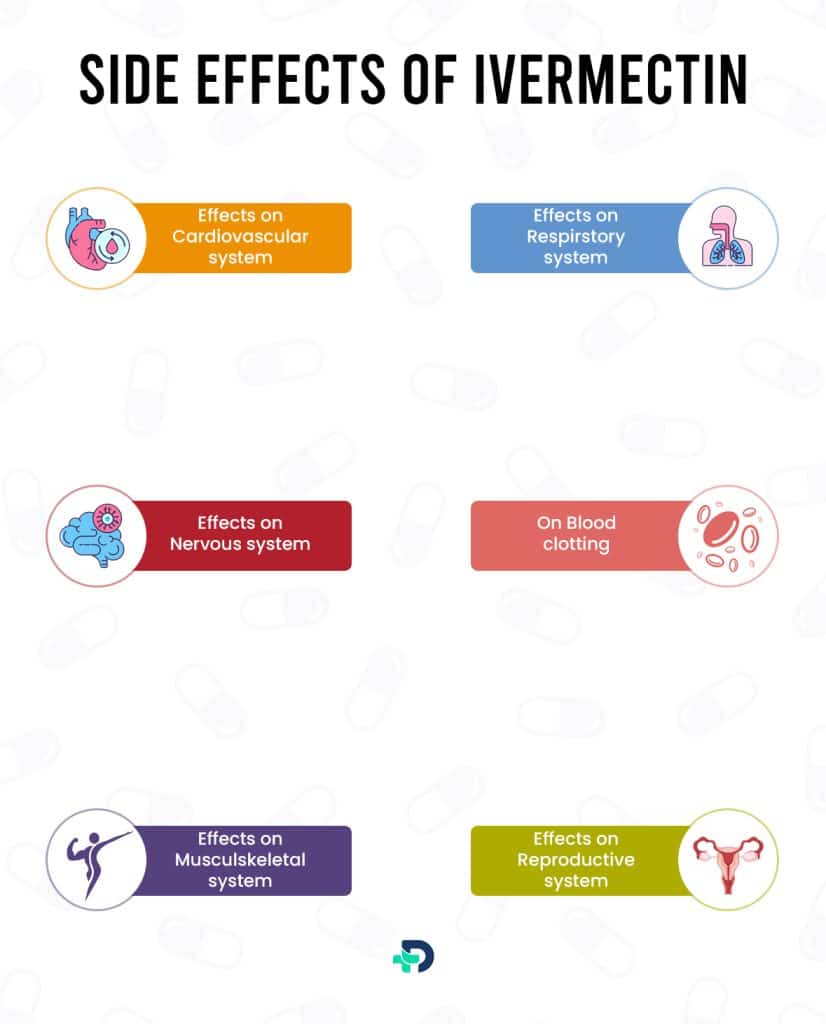
Side effects of Ivermectin
It has been shown that ivermectin is safe and tolerated well in a variety of parasite infections. It is practical and easy to use. However, it might have negative consequences and change a few biological processes.
Some common side effects are:
- Itchy skin
- Vomiting sensation
- Giddiness
- Pain in the abdomen
- Lethargy
- Difficulty in passing stools
Some of the serious side effects are:
- Seizures
- Stevens Johnson syndrome4Side effects| Researched based study from Fda.gov
- Conjunctival hemorrhage
- Neurotoxicity
- Toxic epidermal necrolysis
- Hepatitis
- Loss of vision
- Increased the risk of asthma4Side effects| Researched based study from Fda.gov
Ivermectin side effects on a selected few organs and systems:
Effects on Cardiovascular System
- While the patient is supine (sleeping) and standing, ivermectin pills may produce tachycardia (increased heart rate) and postural hypotension.
Effects on Respiratory System
- After 24 to 30 hours, the patient may undergo bronchodilation, which drastically lowers vital capacity. A few patients may also experience dyspnea and brief coughing spells (shortness of breath).
Effects on Nervous system
- Ivermectin might give you a headache and dizziness. Some individuals exhibited anorexia, lethargy, and a rapid change in conduct.
- Infections with the Loa loa may result in Loa loa encephalopathy from ivermectin.
- Ivermectin cannot potentially harm the brain since it cannot penetrate the BBB.
On Blood clotting
- Ivermectin-treated onchocerciasis patients have reported extended prothrombin times which further delays clotting time.
On Skin
- Ivermectin may result in skin edema, rashes, discomfort, and pruritus.
- Ivermectin prescribed to HIV individuals showed rashes and swollen lymph nodes.
Effects on Musculoskeletal system
- Myalgia (muscle pain), minor joint and bone discomfort is also seen with the use of ivermectin.
Effects on Reproductive system
- Scrotal discomfort accompanied with orchitis (inflammation of one or both testicles) or epididymitis (inflammation of the epididymis) is a side effect of Ivermectin.
Storage
Storage of Ivermectin
- Ivermectin should be stored correctly by keeping it in its original container and out of the sun, heat, and moisture.
- Ivermectin should normally be kept at room temperature, which is typically between 20°C and 25°C (68°F and 77°F).4Storage| Researched based study from Fda.gov
- Ivermectin should be kept out of the reach of children and dogs at all times. This will help to avoid accidental consumption.
- Avoid freezing topical or oral ivermectin formulations since freezing them might compromise their stability.
- Always have a look at the expiry date that is printed on the box. Ivermectin should not be used beyond the specified date since its effectiveness could be harmed.
- Ivermectin should not be disposed of properly by flushing any unused or expired drugs down the toilet or pouring them into drains. Instead, speak with your pharmacist to find out how to properly dispose it.
Safety measures
Safety measures and warnings
Here are some significant ivermectin warnings and safety measures:
Ivermectin is usually regarded as safe when used correctly and under a skilled healthcare professional’s supervision.
The drug’s safety and effectiveness in treating viral infections and other illnesses are currently under investigation.
Reactions to Allergens
- Ivermectin dosage should be avoided by those who have hypersensitivity to it or an allergy to any of its ingredients. The spectrum of allergic reactions can vary from mild skin manifestations to the potentially fatal condition known as anaphylaxis.
Breastfeeding and pregnancy
- Ivermectin’s safety during pregnancy and breast-feeding hasn’t been thoroughly proved. The administration of ivermectin during pregnancy is generally discouraged, unless the potential benefits outweigh the associated risks. If you are trying to conceive while using ivermectin, it is essential to discuss the possible hazards with a healthcare provider.
Liver dysfunction
- Ivermectin should be used with care by those who have liver disease or poor liver function since the medicine is largely metabolized in the liver. In these circumstances, dose modifications may be required.
Neurological Conditions
- Ivermectin’s adverse effects at higher doses, may include neurological problems. Ivermectin use should be careful who has a history of seizures.
Pediatric Use
- Ivermectin has not been sufficiently researched for its safety and effectiveness in kids weighing less than 15 kg (33 lbs). Doses should be carefully chosen depending on age and weight.
Off-Label use
- Off-label usage is when ivermectin is used for a condition that has not been authorized by regulatory authorities. Only after carefully evaluating the available evidence and with the assistance of a healthcare expert You can use it.
Drug Resistance
- Ivermectin may cause parasites to become resistant over time, just like any other drug. It is important to adhere strictly to the prescribed dosage and usage instructions of the medication in order to minimize the chances of developing resistance.
Breastfeeding
- Ivermectin dosage in lactating mothers is typically avoided unless the potential advantages clearly exceed the hazards.
Drug Interactions
Drug interactions of Ivermectin
Like any prescription, ivermectin may interact with other medications, herbs, or supplements, which may reduce its efficacy, cause adverse effects, or change its metabolism.
Important medication interactions include:
CYP3A4 inducers
- CYP3A4-inducing drugs may enhance ivermectin metabolism, decreasing its efficacy. Examples are Rifampin, phenytoin, carbamazepine etc.
CYP3A4 inhibitors
- CYP3A4 inhibitors block ivermectin metabolism, increasing medication levels and adverse effects. Ketoconazole, itraconazole, clarithromycin, and grapefruit juice are CYP3A4 inhibitors.
Other Anti-parasitic Drugs
- Multiple anti-parasitic medicines may enhance adverse effects and toxicity. Ivermectin should only be taken with other parasitic infection drugs under medical supervision.
Anticoagulants
- Warfarin with ivermectin may increase bleeding risk. These medicines may need close coagulation monitoring.
CNS depressants
- Ivermectin may increase the sedative effects of other central nervous system depressants such benzodiazepines or opioids.
Immunosuppressants
- Ivermectin 5Interactions| Researched based study from Nlm.nih.gov may modify the immunological response of transplantation or immunosuppressants like methotrexate and cyclophosphamide.
Anticonvulsants
- Ivermectin and anticonvulsants like Clonazepam, lamotrigine and topiramate may interact because they impact the neurological system. Dose changes or careful monitoring may be needed.
Before you begin ivermectin or any new medicine, inform your doctor about all your medications, herbs and vitamins. They may evaluate medication interactions and change doses or suggest alternatives. Follow your doctor’s ivermectin dosage and duration.
Tips
Tips to note while taking ivermectin
To improve the efficacy and safety of ivermectin medication, adopt these lifestyle tips:
Maintain hygiene
- Regular hand washing and a clean home may help avoid parasite infections and enhance ivermectin’s benefits.
Don’t Share personal items
- Avoid sharing clothes, towels, and beds with others, particularly if they have parasite illnesses.
Balanced Diet
- A well-balanced, vitamin-rich diet may help your body recover from parasite infections.
Avoid Alcohol and Grapefruit Juice
- Using ivermectin with alcohol may enhance negative effects. Avoid grapefruit juice when taking drugs since it interferes with drug metabolism.
Keep Appointments
- Attend all follow-up visits with your doctor to track your progress and confirm the therapy is effective.
Never self-medicate with ivermectin
- Self-medicating or sharing medicine might cause side effects or treatment failure.
Follow your doctor’s ivermectin instructions. Ask your doctor about lifestyle changes while taking ivermectin.
Takeaway
Takeaway
Ivermectin is an anti-parasitic drug with broad spectrum efficacy that has received approval from the Food and Drug Administration (FDA). It is commonly employed for the treatment of various parasitic infections in both human and animal populations. It has shown to be quite successful and has made a great contribution to the management and eradication of several parasitic illnesses.
The extensive utilization of ivermectin as an anti-parasitic agent in low- and middle-income nations for the treatment of helminth infections, scabies, and pediculosis is widely observed by the World Health Organization (WHO). For humans, ivermectin (0.2–0.4 mg/kg) is quite safe.
However, there is still dispute and controversy around its usage for off-label uses, such as the treatment of COVID-19.
Any feedback on this article?
 This Articles content was accurate
This Articles content was accurate Very Informative Article
Very Informative Article I have a question or a comment
I have a question or a comment
 This article contains inaccurate content
This article contains inaccurate content This article was not helpful
This article was not helpful I have a question or a comment
I have a question or a comment
We appreciate your helpful feedback!
Checkout our social pages
References
-
National Library of Medicine
Ivermectin as an antiparasitic agent for use in humans | Overview
-
National Library of Medicine
Ivermectin: a potent new antiparasitic agent | Uses
-
National Library of Medicine
Ivermectin: an award-winning drug with expected antiviral activity against COVID-19 | Uses
-
FOOD AND DRUG ADMINISTRATION
STROMECTOL®(IVERMECTIN) | Dosage | Storage
-
National Library of Medicine
Ivermectin: a mini-review | Interactions













